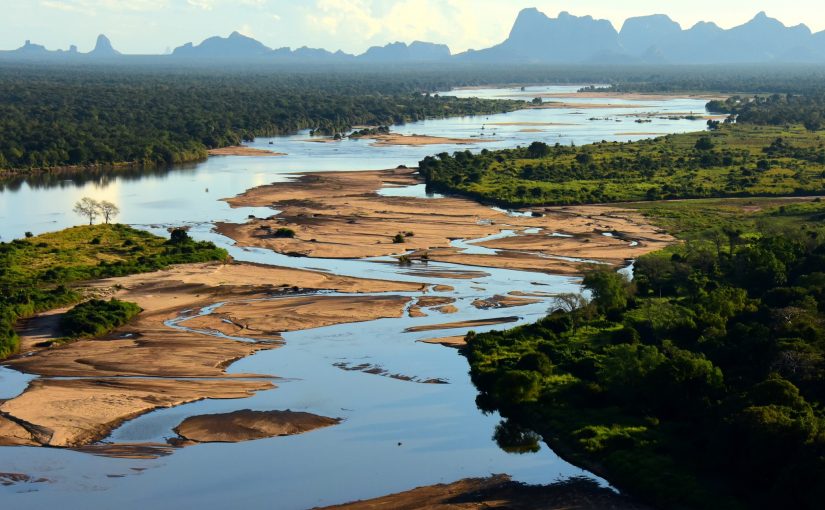TICAD: Japan to announce plan to accelerate Nacala Corridor development, designate four Japanese ...
Mozambique earmarks US$341.9 billion for climate finance strategy through 2034

FILE - For illustration purposes only. [File photo: Niassa Lion Project]
Mozambique’s new National Climate Finance Strategy (ENFC) estimates a requirement of US$341.9 billion to support five priority pillars up to 2034, with the document including plans to exchange debt for financing climate projects [debt-for-climate swaps].
The ENFC for 2025–34, approved by the Government and effective from 6 November, highlights the importance of partnering with the private sector and international organisations to create innovative financing mechanisms, ensuring that climate initiatives are fully integrated into Mozambique’s development policies and plans.
The document states that US$341.9 billion [€294.6 billion] is required to implement these priorities, emphasising the need to mobilise national and international financial resources to support projects promoting climate adaptation and mitigation.
Five strategic areas are identified:
- reforming the legal framework to create a regulatory environment favourable to climate finance in both public and private sectors;
- reforming the fiscal system to integrate climate considerations, mobilise domestic resources for climate adaptation and mitigation, and promote green taxation and budgeting;
- reforming the financial system to increase investment in climate and sustainable actions through regulation, incentives and institutional capacity building;
- strengthening national climate finance capacities focusing on the public sector, private sector and higher education; and
- accessing national and international climate finance, including innovative financial instruments via transparent, inclusive and effective national coordination.
The 2024-2034 National Climate Finance Strategy also defines five priority instruments for climate finance access:
- grants,
- debt-for-climate swaps,
- climate risk insurance,
- forecast-based financing (FbP), and
- carbon credits.
The document recalls that Mozambique is among the countries most vulnerable to extreme weather events, with climate change expected to increase their frequency and intensity in coming years.
“The occurrence of cyclones and floods has increased in recent years and is expected to continue. The country’s coast – home to 60% of the population, the three largest cities and critical infrastructure – is most exposed to climate risks, including cyclone damage and rising sea levels,” it states.
It adds that “climate change is raising average temperatures nationwide and causing greater rainfall variability,” noting that in 2023 Mozambique ranked among the “top 10 countries” with the highest risk index based on exposure, vulnerability, susceptibility and lack of mitigation and adaptation mechanisms.
Since 2000, the country has experienced over 75 extreme climate events affecting infrastructure, the economy and people’s wellbeing.
The document underlines that climate impacts “could mean a potential GDP reduction of between 4% and 14% for the 2040–50 decade,” adding that “this loss is not only financial, also affecting the Government’s ability to invest in essential public services such as health and education.”
“It is clear the country faces climate risks with significant economic consequences, requiring coordinated efforts to strengthen resilience to climate change impacts and to gradually move towards a greener economy. The ENFC aims to contribute by enabling a set of cross-sector actions to help attract finance for projects promoting climate adaptation and mitigation,” it concludes.
READ: Mozambique: Climate Financing Strategy approved – Watch












Leave a Reply
Be the First to Comment!
You must be logged in to post a comment.
You must be logged in to post a comment.